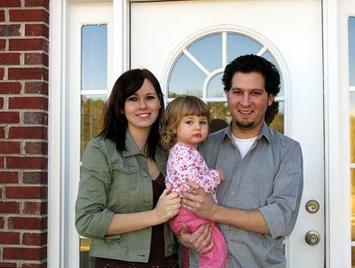
The millennial generation has had much to endure – a still-poor job market, high housing prices and a generally sour political atmosphere. But perhaps the final indignity has been the tendency for millennials to be spoken for by older generations, notably, well-placed boomers, who often seem to impose their own ideological fantasies, without actually finding out what the younger cohort really wants. The reality, in this case, turns out far different than what is bespoken by others.
Nowhere is this tendency clearer than in the perception of what kind of life – and what places – will millennials find attractive. Generally, the narrative goes like this: Millennials are different, they don’t care about owning homes, detest the suburbs and would prefer to spend their lives in dense apartment blocks, riding the rails or buses to whatever work they might be able to find.
Urban theorists, such as Peter Katz, insist that millennials (the generation born after 1983) have little interest in “returning to the cul-de-sacs of their teenage years.” Manhattanite Leigh Gallagher, author of “The Death of Suburbs,” asserts with certitude that “millennials hate the suburbs” and prefer more eco-friendly, singleton-dominated urban environments.
Such assessments thrill the likes of real estate speculators, such as Sam Zell, who welcomes “reurbanization” as an opportunity to cash in by housing a generation of Peter Pans in high-cost, tiny spaces unfit for couples and unthinkable for families. Others of a less-capitalistic mindset see in millennials a post-material generation, not buying homes and cars and, perhaps, not establishing families. Millennials, for example, are portrayed by the green magazine Gris as “a hero generation” – one that will march, willingly, even enthusiastically, to a downscaled and, theoretically, greener future.
Read the entire piece at The Orange County Register.
Joel Kotkin is executive editor of NewGeography.com and Roger Hobbs Distinguished Fellow in Urban Studies at Chapman University, and a member of the editorial board of the Orange County Register. He is also executive director of the Houston-based Center for Opportunity Urbanism. His newest book, The New Class Conflict is now available at Amazon and Telos Press. He is also author of The City: A Global History and The Next Hundred Million: America in 2050. He lives in Los Angeles, CA.
New home photo by BigStockPhoto.com.













Cities are the abyss
Cities are the abyss of the human species, said Rousseau, and he was right. I really hope the good sense manifested by Millennials as depicted in Kotkin's OC Register piece is a true reflection. The breathless chroniclers and promoters of the new urbanism view life solely as an aesthetic matter, busy living the sentiment of the young Nietzsche who said that existence and the world can be justified only as an aesthetic phenomenon.
Millennials are Young
Baby Boomers in their 20s often graduated into a weak economy with few jobs, but were also more interested in having a good time than they were in living in the suburbs. However, they matured, had children and things like kids, schools, parks, space, yards, dogs and a car begin enough to carry all their stuff became important.
Millennials range in age from high school to very early 30s. While some pundits may fantasize that they will want to live all their lives 4 to an apartment, only ride their bikes or buses for transport, will never have children and thus not contribute to overpopulation, and might spend their lives walking gently upon the earth, most likely they will disappoint such sages and marry and have children, then things like schools, parks, space yards, dogs and a car big enough to carry all their stuff will become important.
Millennial identity
I'm a Millennial and I don't think we think of ourselves as Millennials collectively nearly as much as other generations and the writers of trend pieces do. 95 percent of the time I hear the words "our generation" (people on the street rarely use the word "Millennial") it's followed by "is getting screwed on jobs" or something like that. I don't know where you're getting all these collective ideas about us from.
For example, many of us would have a lot of fun mocking of that tacky McMansion (based on the style of the door) in the stock photo you picked.
I wonder how many
Joel, I wonder how many Millennials will go for A Part-time Job in the Country: Notes Toward a New Way of Life in America? From the blurb:
"In this post-Christian utopia, Luke Lea explores a world of small country towns in which the people work part-time outside the home, and in their free time build their own houses, cultivate gardens, cook and care for their children and grandchildren, and pursue a variety of leisure-time activities. They live on small family homesteads grouped around neighborhood greens, and get around town in glorified golf-carts. So thoroughly are work and leisure integrated into the fabric of their everyday lives that they don’t feel much need to retire, and they die at home in their beds as a rule, surrounded by loved ones.
For those who would like to move to this world he provides a map with some directions for how to get there from here."
I wrote this 50 page pamphlet, which I plan to publish on Kindle, for Millennials (my daughter's generation) taking as my model Hertzl's The Jewish State. Which is to say I hope it will spark a new kind Zionism in America. In particular I am hoping it will eventually attract the attention of a few dozens, or perhaps hundreds, of talented young people in America, in their 20's and 30's mostly, who would like to organize such a movement for change.
Luke Lea
ask
We stand behind our products quality and ensure that people can use them without any worries
http://7star.pk/
http://7star.pk/90-pre-owned-used-watches-for-sale-in-pakistan
http://7star.pk/33_citizen-watches